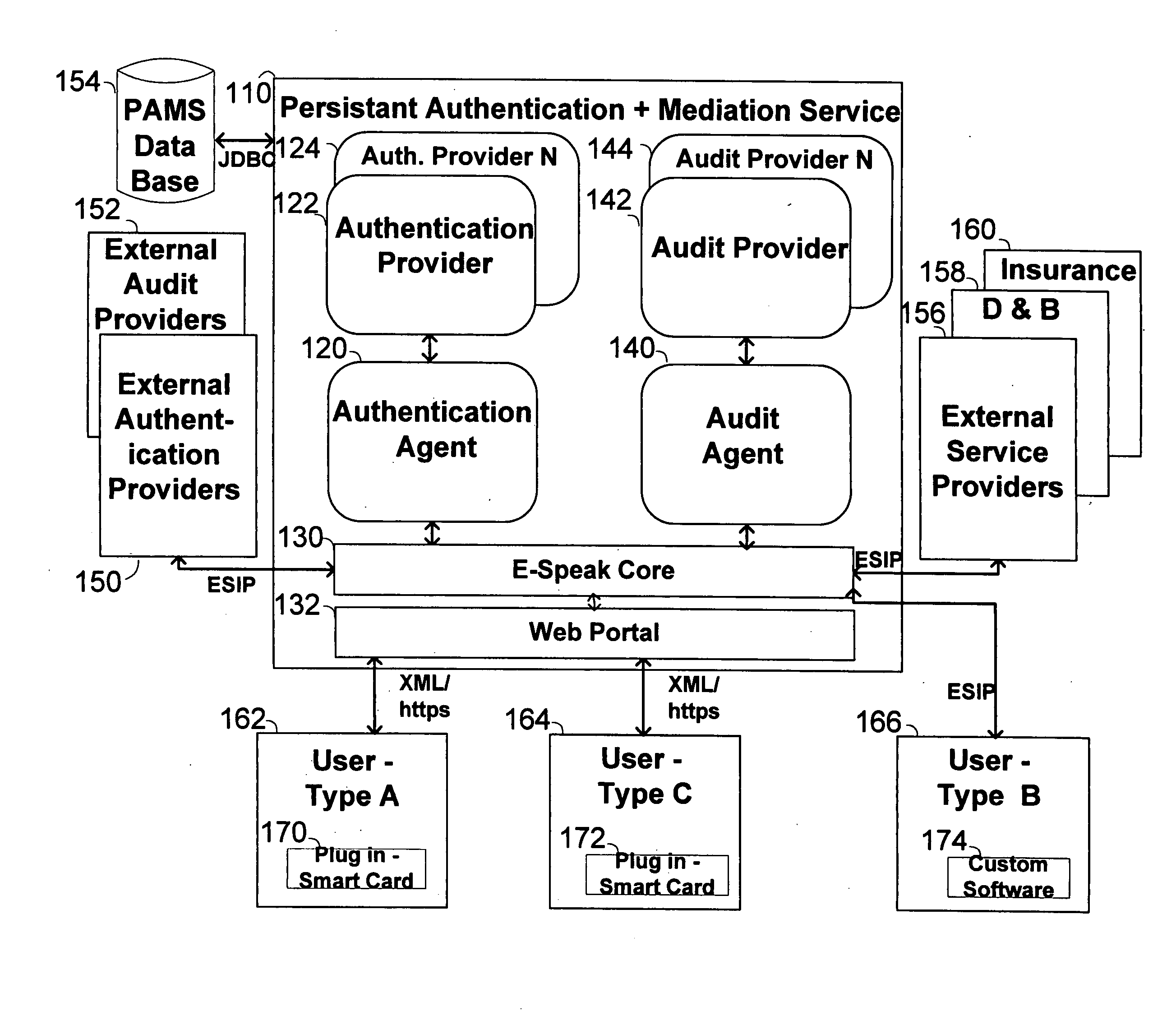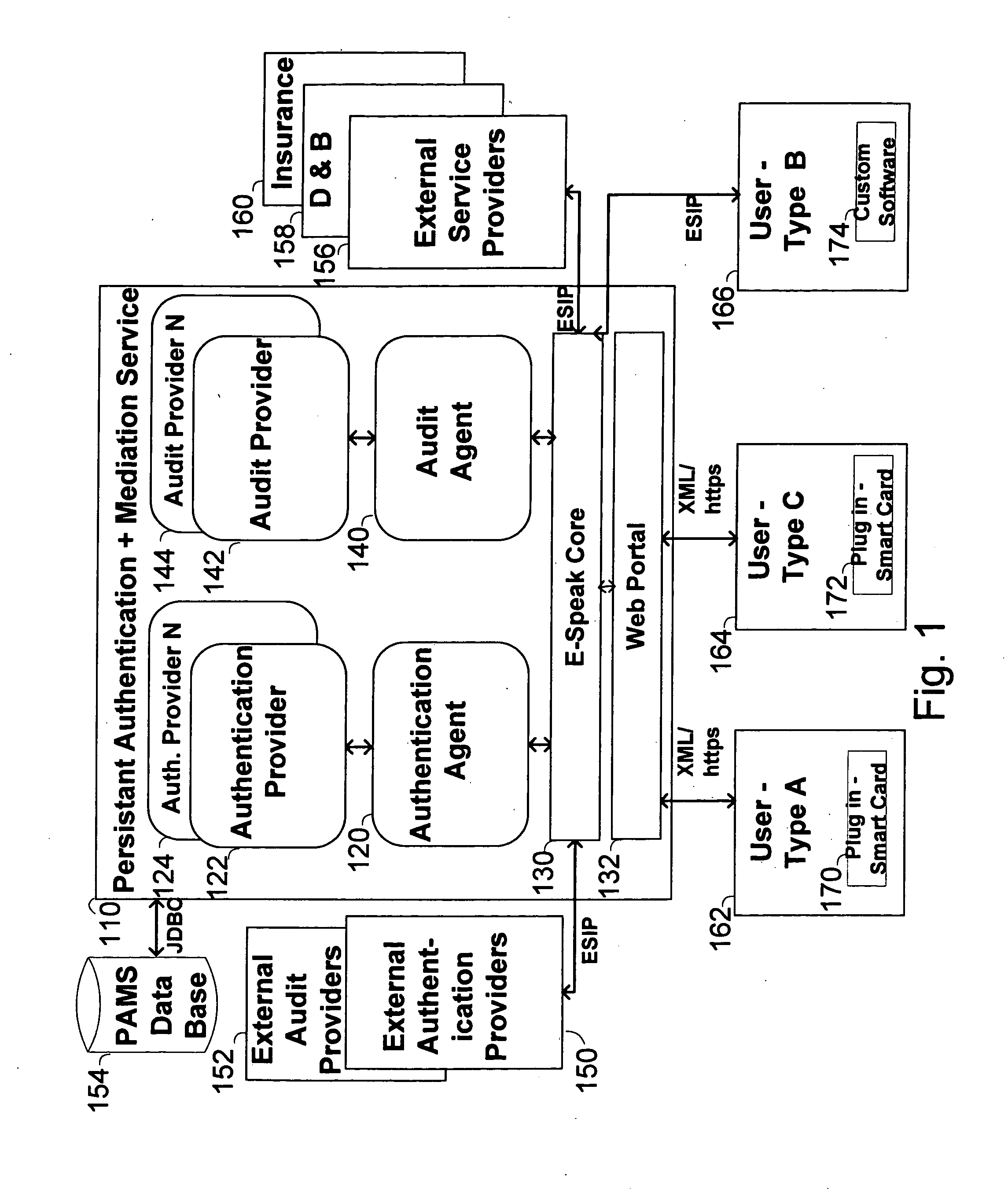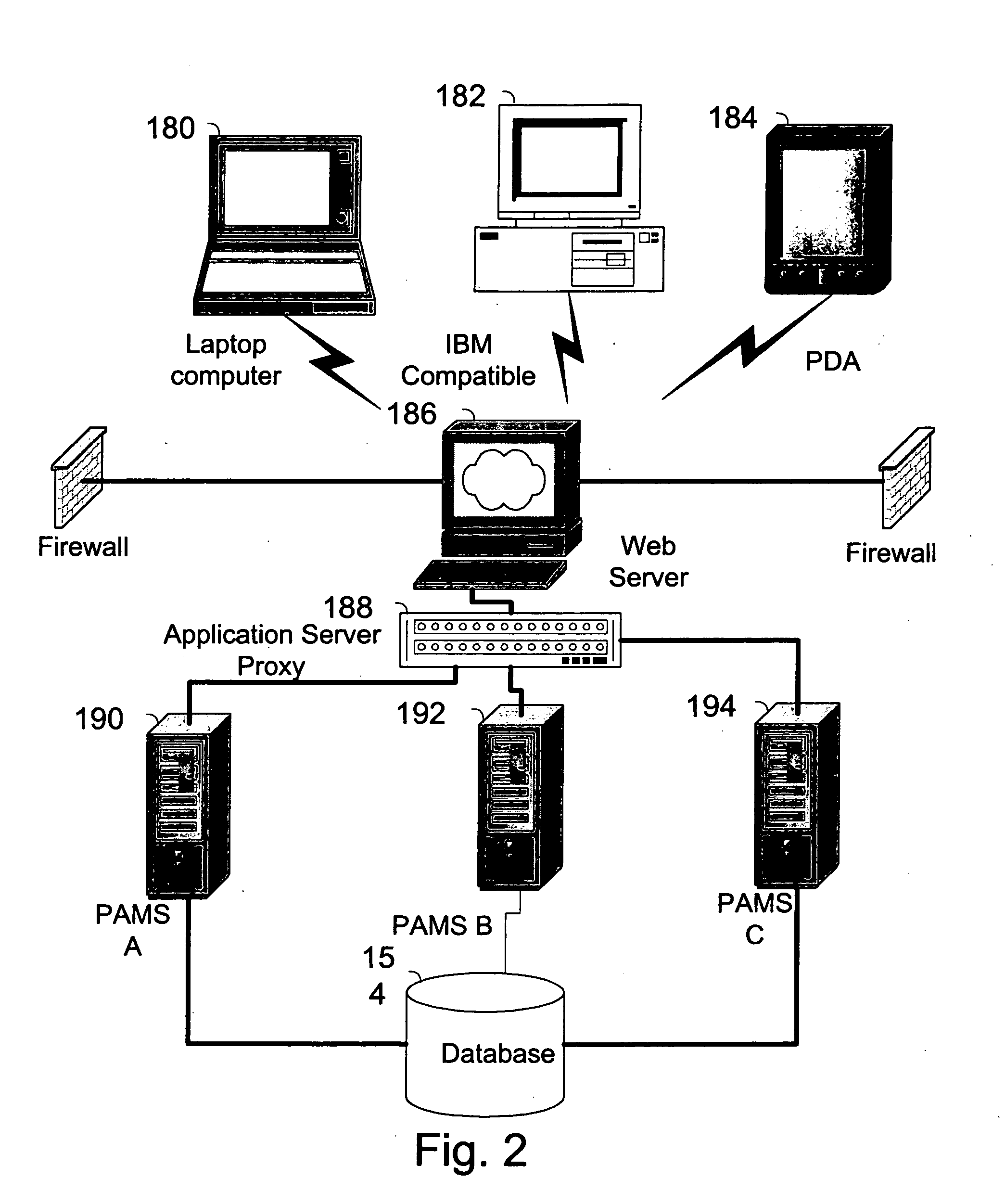Method, system and service for conducting authenticated business transactions
a business transaction and business transaction technology, applied in payment protocols, instruments, data processing applications, etc., can solve the problems of increasing complexity and risk of conducting business internationally, increasing difficulty, and incurring risk, and achieves rapid authentication and strong security
- Summary
- Abstract
- Description
- Claims
- Application Information
AI Technical Summary
Benefits of technology
Problems solved by technology
Method used
Image
Examples
example 1
Forming a Relationship
[0210]FIG. 7 illustrates the process whereby two businesses, Business 1 and Business 2 form a relationship.
[0211] Business 1 (162), a Type A user, uses the Discovery portal to review information about Business 2 (165), also a Type A user in communication 231. The Discovery feature is accessed through the Web Portal which calls on the e-speak dynamic discovery feature. Business 1 in this case is able to review Business 2's access policy and notices that relationships are restricted to businesses that meet specific criteria, in this case having annual sales of over $10 million. Business 1 specifies that it would like to be introduced to the distributor, Business 2, by selecting the ‘Request Relationship’ function from the Discovery Portal.
[0212] The Discovery feature conveys the request to Business 2 by placing a message in Business 2's in box in communication 232. Business 2 is provided with the information present in the active persona of Business 1.
[0213] ...
example 2
Three Businesses Collaborate
[0220] Referring to FIG. 8, Business 1 (162) and Business 2 (165), both Type A users, have created a relationship as described previously in Example 1. In communication 241, Business 1 (162) initiates an collaboration session with Business 2 by selecting the “Collaboration” feature from the Discovery portal which causes the Collaboration Portal to be displayed by the Web Portal. Business 1 notifies Business 2 by selecting ‘Contact Partners’ from the Collaboration portal and selecting Business 2. In communication 242 a message is sent to Business 2 Discovery Portal's ‘Alert’ function, and / or to a mobile device, etc. which Business 2 has designated.
[0221] In this case these two businesses want to conduct a trade in which Business 1 is the buyer and Business 2 is the seller. Both parties have already signed onto (authenticated to) the PAMS.
[0222] When Business 2 accesses the Collaboration Portal it can exchange messages and documents with Business 1. In ...
example 3
An Exchange Outsources Authentication to the PAMS and Signs up all its Business Customers
[0232] Referring to FIG. 9, in this example an exchange 161 selects the PAMS to provide services to its business customers. In this case, the exchange comprises both a User Type A (it is able to interact with PAMS members through a browser) and a User Type B (its web site uses PAMS for access control).
[0233] The Exchange initiates the open account process with the PAMS by accessing the ‘become a member’ function on the PAMS's home page in the communication labeled 251. The Exchange opens an account with the PAMS, it provides all the information necessary for enrollment. The Exchange is instructed to complete a number of online forms which provide specifics on the Exchange and the employee(s) who will be enabled to utilized the PAMS service. The Exchange is also instructed to provide documents which support its authenticity such as SEC filings, etc. The exchange also provides information on it...
PUM
 Login to View More
Login to View More Abstract
Description
Claims
Application Information
 Login to View More
Login to View More - R&D
- Intellectual Property
- Life Sciences
- Materials
- Tech Scout
- Unparalleled Data Quality
- Higher Quality Content
- 60% Fewer Hallucinations
Browse by: Latest US Patents, China's latest patents, Technical Efficacy Thesaurus, Application Domain, Technology Topic, Popular Technical Reports.
© 2025 PatSnap. All rights reserved.Legal|Privacy policy|Modern Slavery Act Transparency Statement|Sitemap|About US| Contact US: help@patsnap.com



